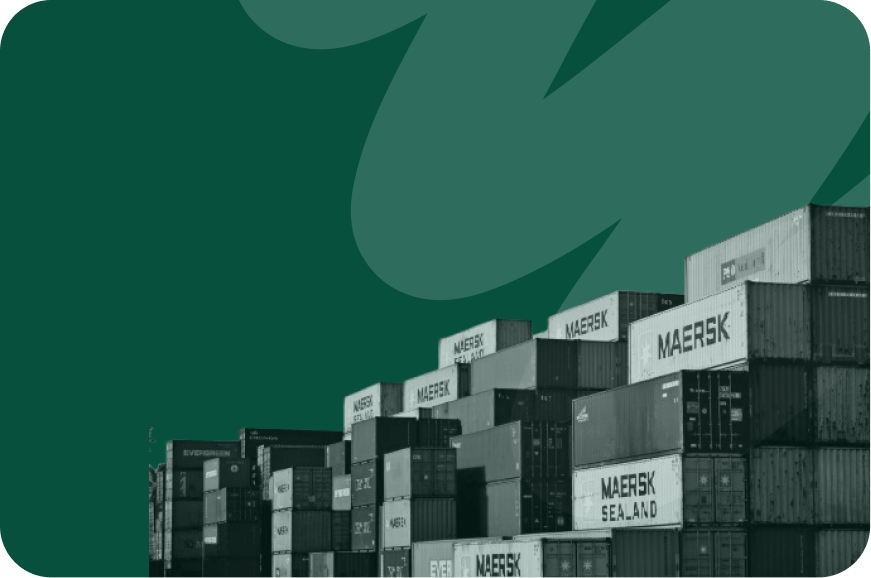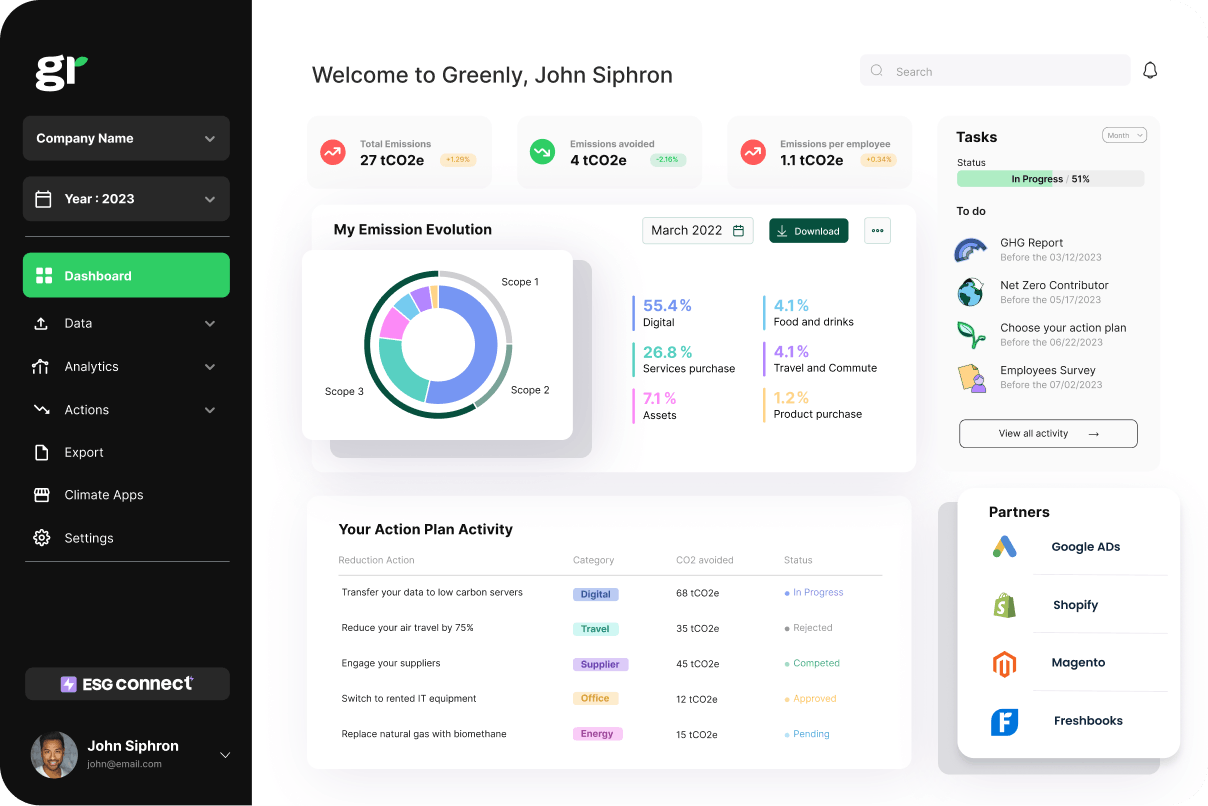
What are the 3 Pillars of Corporate Sustainability?
In this article, we'll explore what the 3 pillars of corporate responsibility are, why they're important, and how businesses can turn them into practical action.
ESG / CSR
Industries



In 2020, the UK Government introduced Procurement Policy Note (PPN) 06/20, aimed at embedding social value considerations into government contracts. This policy established a new, standardized framework for evaluating and incorporating social value in public procurement processes. In this article, we'll explore what PPN 06/20 means for businesses, the public sector, and its potential to drive positive environmental and social change.
👉 What are the key requirements of PPN 06/20? Who is impacted by this policy? And how will PPN 06/20 influence environmental outcomes and future government tenders?

Before diving into the specifics of PPN 06/20, it's helpful to understand the purpose of a Procurement Policy Note (PPN) more broadly.
Procurement Policy Note 06/20 was introduced in September 2020 by the UK Government and, according to the Note itself, it “launches a new model to deliver social value through government's commercial activities. Central government organizations should use this model to take account of the additional social benefits that can be achieved in the delivery of its contracts, using policy outcomes aligned with this Government's priorities.”
The Public Services (Social Value) Act 2012 set the stage for integrating social value into public procurement in the United Kingdom. It required public sector bodies to ‘consider’ how a proposed procurement might enhance the economic, social, and environmental well-being of the area impacted by the contract. However, while the Act encouraged social value, the extent to which it was prioritized remained flexible, as the decision was left to the discretion of individual contracting authorities. In many cases, social value considerations were often overlooked or outweighed by other factors, particularly when procurement deadlines were tight.
Procurement Policy Note 06/20 builds on the 2012 Act by providing more structured guidance and elevating the importance of social value. Unlike the Act, PPN 06/20 makes it mandatory for central government bodies to explicitly evaluate social value in procurement decisions, rather than just considering it. It also requires that a minimum weighting of 10% be assigned to social value in all government tenders, ensuring that it plays a more significant role in public procurement.

Procurement Policy Note 06/20 became mandatory as of the 1st of January, 2021. The policy note is applicable to all public sector procurements covered by the Public Contracts Regulations 2015 and applies to the following “in-scope organizations”:
In practice, this means that the majority of public bodies in the UK, including government departments, local authorities, the National Health Service (NHS), and police authorities are subject to the policy note.
Non-governmental entities may also be subject to the policy if they operate in the water, postal service, or transport sectors and perform a regulated utility activity. For example, private-sector water utility companies, electricity providers, and distribution operators may be included in this category.
Procurement Policy Note 06/20 affects tenders that fall under the remit of the Public Contracts Regulations 2015. It covers all contracts where money is exchanged in return for goods, works, or services. However, it should be noted that there is a minimum threshold for the value of the regulated contract - this threshold varies depending on the type of goods or services supplied.
The thresholds are updated by the UK Cabinet Office every 2 years and can be found on the government website. The most recent thresholds were released in December 2023 and came into effect in January 2024, they are as follows:
| Contract Type | Threshold (GBP) |
|---|---|
| Public Contracts Regulations | |
| Supplies & Services (Central Government bodies) | £139,688 |
| Supplies & Services (Others) | £214,904 |
| Subsidised Services Contracts (All bodies) | £214,904 |
| Works (All bodies) | £5,372,609 |
| Light Touch Regime for Services (All bodies) | £663,540 |
| Small Lots (Supplies & Services) | £70,778 |
| Small Lots (Works) | £884,720 |
| Utilities Contracts Regulations 2016 | |
| Supplies & Services (All sectors) | £429,809 |
| Works (All sectors) | £5,372,609 |
| Small Lots (Supplies & Services) | £70,778 |
| Small Lots (Works) | £884,720 |
| Concession Contracts Regulations 2016 | |
| Concession Contracts (All sectors) | £5,372,609 |
| Defence and Security Public Contracts Regulations 2011 | |
| Supplies & Services (All sectors) | £429,809 |
| Works (All sectors) | £5,372,609 |
| Small Lots (Supplies & Services) | £70,778 |
| Small Lots (Works) | £884,720 |
Referred to as the "Social Value Model," this structured framework comprises over 50 metrics that organizations bidding for public contracts must track. These metrics guide both the procurement process and ongoing project monitoring, ensuring that contractors contribute measurable social value. The emphasis placed on each metric varies depending on the sector, industry, and specific contract requirements.
💡 For businesses looking to supply goods or services to government bodies, a solid understanding of these metrics - and the ability to track and demonstrate progress - is essential for success in future tenders.
The Social Value Model outlines five key priorities, each of which addresses a specific area where contractors can contribute to social value. These priorities go beyond simple compliance, focusing on how organizations can make a positive, lasting impact on society, the economy, and the environment through their contracts. The key priorities are:
Let’s take a closer look at each priority and how it translates into tangible actions for contractors:
This priority focuses on supporting individuals, businesses, and communities in recovering from the impact of the pandemic. Contractors are expected to:

This priority aims to address economic imbalances and support sustainable growth. Contractors can contribute by:

Promoting equal opportunity is critical to creating inclusive work environments. Contractors are encouraged to:

This priority emphasises improving the well-being of both the workforce and the broader community. Contractors should focus on:

As part of the government’s environmental goals, this priority focuses on reducing the negative impact of contracts and improving overall environmental wellbeing. Contractors can contribute by:

👉 For each of these policy priorities, the Social Value Model provides evaluation questions, response guidelines, award criteria, and reporting metrics. Public authorities and organizations subject to Procurement Policy Note 06/20 must integrate these elements from the start of the procurement process, making them a fundamental part of tendering. As a result, it’s crucial for organizations submitting bids to fully understand the Social Value Model and its requirements to succeed in government contracts.
Social value creates lasting benefits for individuals, communities, and the environment. More importantly, the Government has a duty to ensure that taxpayer money is used to its fullest potential by maximizing the positive impact of its contracts for goods and services. Failing to incorporate social value could lead to missed opportunities and even increased public spending in the future.
By making social value a core element of public procurement, the UK Government is setting a new standard for suppliers, encouraging innovation, and reshaping the supply landscape. Over time, this approach could drive a broader cultural shift toward sustainability and responsible business practices.
When submitting a tender, organizations must provide comprehensive qualitative responses that align with the relevant sections of the Social Value Model. Rather than applying a one-size-fits-all approach, bidders can select the social value priorities most pertinent to the specific contract. These priorities may vary depending on the nature of the goods or services being provided, as well as the sector and community impact. Detailed guidance on how to approach this can be found on the UK Government website and through the Government Commercial Function (a cross-government network that supports government procurement).
It’s important to understand that the assessment of social value is qualitative, not quantitative. This means that the evaluation focuses not only on the quantity of the offering but also on how the goods or services will be delivered and what they will encompass. The contracting authority will assess how well the bidder’s plan addresses the social value criteria and the long-term benefits their approach will provide, both during and after the contract’s execution.
Bidders must clearly outline how they meet the various criteria set out by the Social Value Model and explain how they intend to deliver on these commitments throughout the contract period. This includes detailing key performance indicators, strategies, and actions they will implement to achieve measurable outcomes.
Once submitted, the evaluation process begins and responses are scored based on the award criteria outlined in the Social Value Model. Importantly, social value considerations carry a minimum weighting of 10% in the overall assessment of the tender. This makes social value a significant factor in determining the success of a bid, ensuring it plays a key role alongside other evaluation criteria like cost and quality.

Social value is a vital component of the procurement process and something that all organizations should be aware of when preparing to submit a tender for relevant in-scope public contracts.
Since 2012, there has been a statutory requirement to consider how the contract will improve the economic, environmental, and social well-being of the communities and areas it impacts. But it wasn't until the introduction of Procurement Policy Note 06/20 that this became an explicit requirement.
Procurement Policy Note 06/20 is a crucial improvement on the Public Services (Social Value) Act 2012 and a big step forward in standardizing the approach towards Social Value considerations in procurement processes. It also provides an opportunity for social enterprises to win more government contracts and ensures that social value and environmental considerations are on the conscience of both public and private sector organizations.
In coming years we can expect to see a bigger emphasis being placed on the social value element of contracts; it's no longer enough for organizations submitting a tender to simply treat it as a tick-box exercise.
US companies can bid for UK government contracts, but they must comply with UK procurement laws and any relevant public procurement notes (PPNs), like PPN 06/20. This PPN emphasizes the inclusion of social value in government contracts, meaning US companies would need to demonstrate their commitment to environmental sustainability, equality, diversity, and economic growth.
With the introduction of PPN 06/20 and the increased focus on sustainability in public procurement, organizations are now required to demonstrate their environmental impact, including efforts to reduce carbon emissions. As sustainability becomes a key component of social value, businesses must have the tools to accurately measure and improve their environmental footprint. Greenly offers the expertise and solutions to help your business meet these expectations with our suite of carbon management services.
Greenly provides a full suite of carbon management solutions that empower businesses to accurately measure, manage, and reduce their carbon footprint:
Supply chain emissions often present a significant challenge, but Greenly’s platform helps businesses engage with suppliers to transition to low-carbon alternatives. By fostering sustainable partnerships and greater transparency, Greenly supports businesses in achieving their net-zero goals throughout the entire supply chain.
Greenly’s intuitive platform simplifies the process of measuring and managing carbon emissions, making it easy to track progress toward sustainability goals. With seamless integration across all aspects of your operations, the platform helps you stay on top of your environmental impact and meet ESG targets.
From comprehensive carbon measurement and strategic action planning to supply chain decarbonization and platform integration, Greenly offers end-to-end support for your sustainability efforts. Partnering with Greenly positions your business as a leader in sustainability, helping you drive meaningful change and build a more resilient future.
👉 Take the first step toward a greener, more sustainable business model and get in touch with Greenly today.
